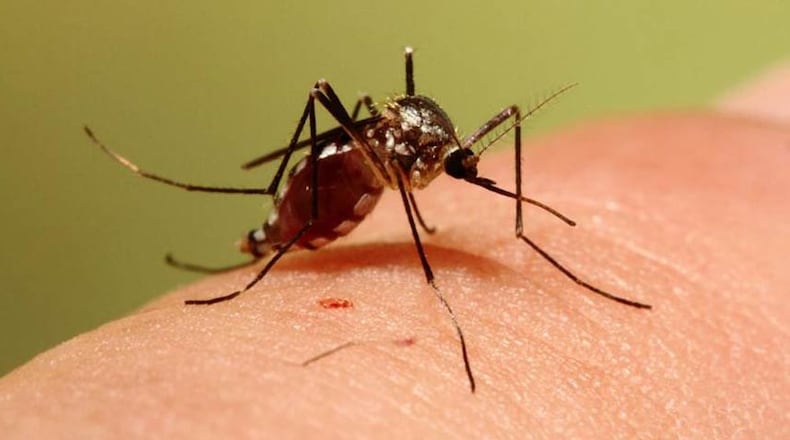West Nile virus can cause potentially serious illness. The health district treats standing water in public areas with an environmentally safe larvicide and traps mosquitoes to have them tested by the Ohio Department of Health for the presence of West Nile virus.
According to Allison Combs, Warren County Health District public information officer, the mosquito trapping season runs from June through September and the samples are tested at the ODH lab in Columbus.
“Usually we find one or two mosquitos with West Nile virus each year in Warren County,” Combs said. “The last positive mosquito we caught was in September 2022.”
She said the last positive human case of West Nile virus in Warren County was reported in 2018. Statewide in 2022, there were seven human cases reported, with the only three local cases in Montgomery County, according to the ODH website.
Protecting yourself
As schools’ fall sports seasons begin, the health district said it’s important that participants and spectators take proper precautions to avoid being bitten by mosquitoes.
Health District officials said these precautions can include wearing long sleeves and applying an EPA-registered mosquito repellent. Spaces with the potential for large crowds such as parks, sports stadiums, and concert venues should routinely empty out trash containers. Elsewhere, removing things like rimless tires and addressing areas with low elevation can prevent standing water from accumulating.
According to the ODH website, anyone who spends time outdoors can be at risk for West Nile virus infection. Ohioans of all ages can get sick with West Nile virus, but adults greater than 50 years of age are more at risk for severe disease. Most cases of West Nile virus reported in Ohio are in adults aged 70-79 years, particularly men, according to ODH.
Between 2001 and 2022, the state averaged about 49 reported human cases of West Nile virus a year and four deaths a year. The median age of people who had West Nile virus is 59, according to the ODH website.
To minimize the number of mosquitoes and reduce the risk of being bitten, follow the tips below:
· Make sure doors and windows have tight-fitting screens;
· Repair or replace any torn screens;
· Remove any discarded tires from your property;
· Dispose of tin cans, plastic containers, ceramic pots, or similar water-holding containers;
· Make sure roof gutters drain properly. Clean clogged gutters in the spring and fall;
· Clean and chlorinate swimming pools, outdoor saunas and hot tubs. Keep empty and covered when not in use;
· Drain water from pool covers;
· Change the water in bird baths at least once a week;
· Turn over plastic wading pools, wheelbarrows, etc. when not in use.
· Clean ditches of obstructions so they drain properly.
· Eliminate any standing water that collects on your property.
· Check trees for cavities that hold water and fill them with soil, gravel, or sand.
· Remind or help neighbors to eliminate breeding sites on their properties.
· Use insect repellent containing DEET at a concentration of at least 30% and follow the label directions.
For more information please visit www.warrenchd.com or on Facebook at www.facebook.com/WCCHD.Ohio.
About the Author

